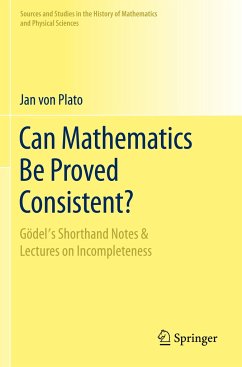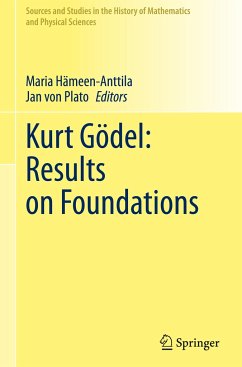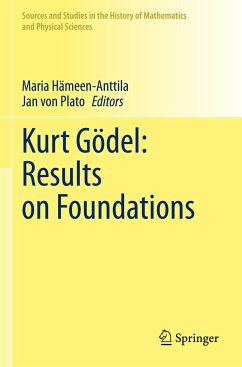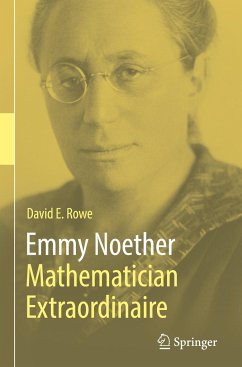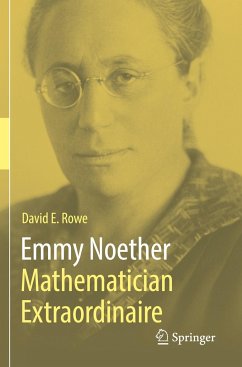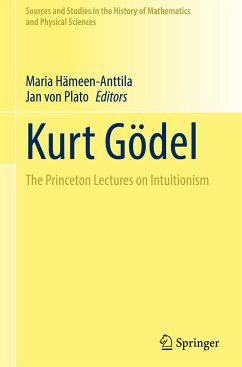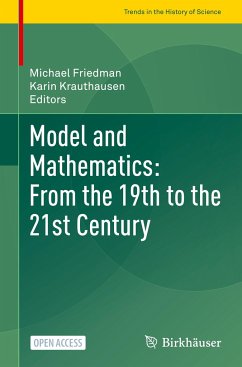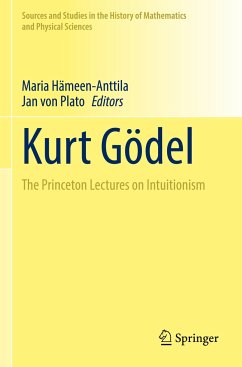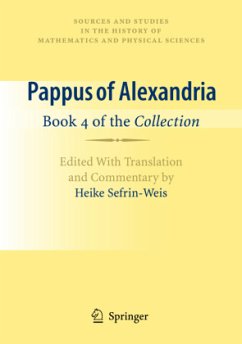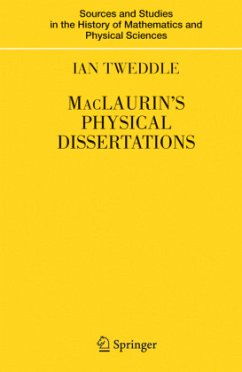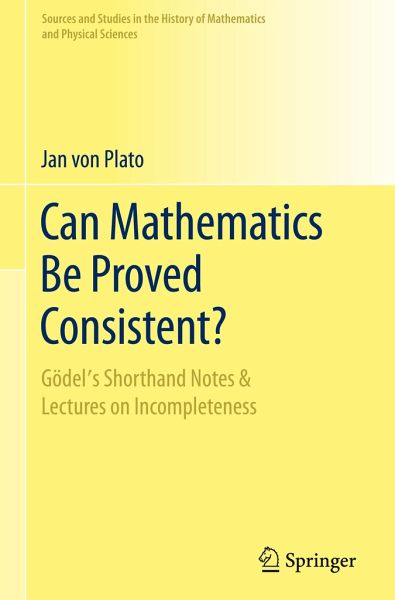
Can Mathematics Be Proved Consistent?
Gödel's Shorthand Notes & Lectures on Incompleteness
Versandkostenfrei!
Versandfertig in 6-10 Tagen
42,99 €
inkl. MwSt.
Weitere Ausgaben:

PAYBACK Punkte
21 °P sammeln!
Kurt Gödel (1906-1978) shook the mathematical world in 1931 by a result that has become an icon of 20th century science: The search for rigour in proving mathematical theorems had led to the formalization of mathematical proofs, to the extent that such proving could be reduced to the application of a few mechanical rules. Gödel showed that whenever the part of mathematics under formalization contains elementary arithmetic, there will be arithmetical statements that should be formally provable but aren't. The result is known as Gödel's first incompleteness theorem, so called because there is...
Kurt Gödel (1906-1978) shook the mathematical world in 1931 by a result that has become an icon of 20th century science: The search for rigour in proving mathematical theorems had led to the formalization of mathematical proofs, to the extent that such proving could be reduced to the application of a few mechanical rules. Gödel showed that whenever the part of mathematics under formalization contains elementary arithmetic, there will be arithmetical statements that should be formally provable but aren't. The result is known as Gödel's first incompleteness theorem, so called because there is a second incompleteness result, embodied in his answer to the question "Can mathematics be proved consistent?"
This book offers the first examination of Gödel's preserved notebooks from 1930, written in a long-forgotten German shorthand, that show his way to the results: his first ideas, how they evolved, and how the jewel-like final presentation in his famous publication On formally undecidable propositions was composed.The book also contains the original version of Gödel's incompleteness article, as handed in for publication with no mentioning of the second incompleteness theorem, as well as six contemporary lectures and seminars Gödel gave between 1931 and 1934 in Austria, Germany, and the United States. The lectures are masterpieces of accessible presentations of deep scientific results, readable even for those without special mathematical training, and published here for the first time.
This book offers the first examination of Gödel's preserved notebooks from 1930, written in a long-forgotten German shorthand, that show his way to the results: his first ideas, how they evolved, and how the jewel-like final presentation in his famous publication On formally undecidable propositions was composed.The book also contains the original version of Gödel's incompleteness article, as handed in for publication with no mentioning of the second incompleteness theorem, as well as six contemporary lectures and seminars Gödel gave between 1931 and 1934 in Austria, Germany, and the United States. The lectures are masterpieces of accessible presentations of deep scientific results, readable even for those without special mathematical training, and published here for the first time.





